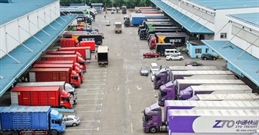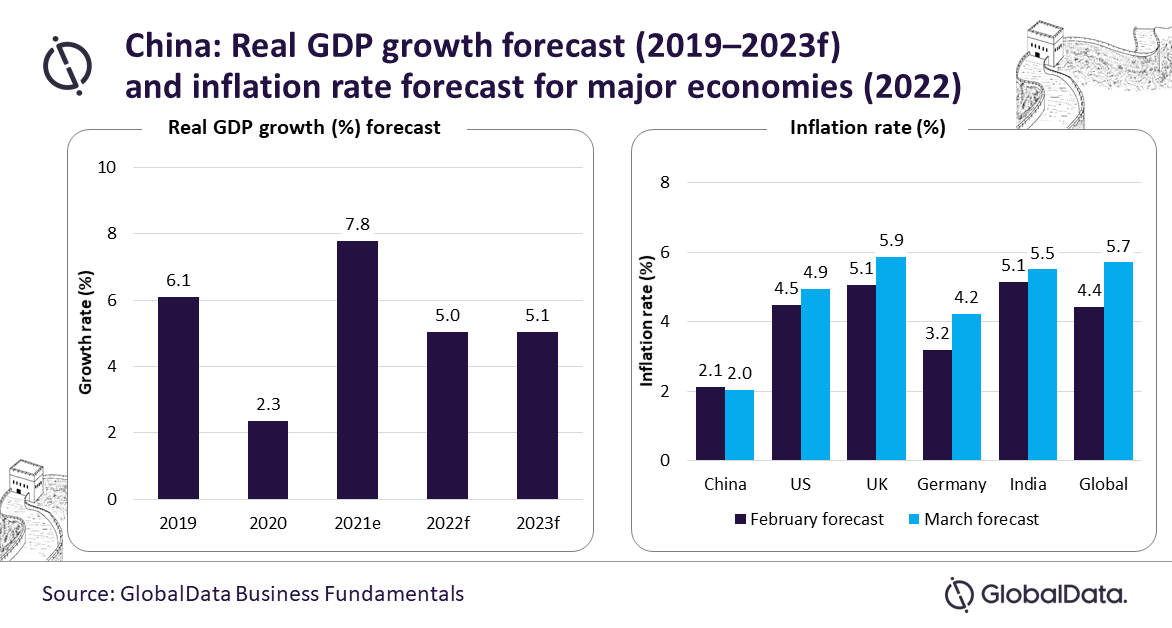
The aggressive zero-Covid policy enforced by Chinese authorities to combat continued outbreak of new variants of the coronavirus — which included strict restrictions resulting in the shutdown of major manufacturing units and ports — will have a "prolonged impact" on the global supply chains, according to GlobalData.
The data and analystics company said in a new report that higher input costs due to supply shortage resulted in the end-products being sold at inflated prices while a vicious cycle of low production, low supply, higher prices along with hike in policy rate to tame supply-driven inflation might overshadow the economic growth prospects for China.
Against this backdrop, GlobalData said it has revised China's real GDP growth forecast downward from 5.5% in December 2021 to 5% in March 2022.
"As China is a global leader in terms of manufacturing and exports of raw materials, major economies are expected to face ripple effects of the strict restrictions. For the US, which has a huge trade deficit with China, supply crunches will add to delays in productions and further raise the price of end-products. Inflationary pressures driven by subdued supply and excess demand will retard the growth prospects for US manufacturers," said Gargi Rao, economic research analyst at GlobalData.
GlobalData noted that Hong Kong, Singapore, Japan, Vietnam, South Korea, and India constituted 29.9% of Chinese exports in 2020 — and noted that these countries remained vulnerable to China's supply chain woes.
Japan's trade deficit soared in January 2022 due to higher imported commodity costs amid the surge in energy prices, GlobalData added.

Hong Kong impact: slower deliveries
Meanwhile, it said for Hong Kong companies, port congestion in China is slowing the delivery of raw materials forcing them to rely more on stockpiled inventories of goods.
Global manufacturing production growth remained subdued across consumer, intermediate and investment goods industries. The analyst noted that global semiconductor and electrical steel shortages will continue into 2022, forcing automakers to limit production.
Against this backdrop of labor shortages, port congestion, supply crunch, GlobalData forecasts the global inflation rate to reach 5.7% in 2022, compared to 3.5% in 2021.
"Despite zero-Covid policy measures being highly localised and targeted, manufacturing giants have shut down along with closure of major shipping ports which affected trading activities," Rao explained.
"On the other hand, with tight credit conditions, structural reforms and regulatory tightening in various sectors, demand for Chinese goods in the global market is slowing down."



